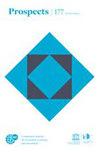Renewing the social contract for education: A personal point of view on the UNESCO report
Q1 Social Sciences
引用次数: 0
Abstract
Abstract Having contributed to the UNESCO report Reimagining our futures together: A new social contract for education as a member of the International Commission and as Chair of the research-drafting committee of this commission, the author now takes the liberty of making some personal notes on the reflections advanced therein. This brief article is divided into three sections. The first presents the main foundations of the social contract of educational modernity (nineteenth century). The second discusses how this contract has to be renewed today. The third advocates the need to value the common in education, based on five main ideas: cooperation (in pedagogy), convergence (in curriculum), collaboration (in teaching), conviviality (in schools), and capillarity (in society). Finally, the epilogue defends the urgency of placing human rights at the center of the process of renewing the social contract for education.更新教育的社会契约:对教科文组织报告的个人看法
作为国际委员会成员和该委员会研究起草委员会主席,笔者为联合国教科文组织报告《共同设想我们的未来:教育的新社会契约》作出了贡献,现在冒昧地就其中提出的思考作一些个人笔记。这篇简短的文章分为三个部分。第一部分介绍了教育现代性(19世纪)社会契约的主要基础。第二份讨论了今天该如何续约。第三种观点主张重视教育中的共性,基于五个主要理念:合作(在教学法中)、融合(在课程中)、协作(在教学中)、欢聚(在学校中)和毛细(在社会中)。最后,结语部分论述了将人权置于教育社会契约更新进程中心的紧迫性。
本文章由计算机程序翻译,如有差异,请以英文原文为准。
求助全文
约1分钟内获得全文
求助全文
来源期刊

Prospects
Social Sciences-Education
CiteScore
13.10
自引率
0.00%
发文量
37
期刊介绍:
Prospects provides comparative and international perspectives on key current issues in curriculum, learning, and assessment. The principal features of the journal are the innovative and critical insights it offers into the equitable provision of quality and relevant education for all; and the cross-disciplinary perspectives it engages, drawing on a range of domains that include culture, development, economics, ethics, gender, inclusion, politics, sociology, sustainability, and education.
Prospects aims to influence a wide range of actors in the field of education and development, whether academics, policy-makers, curriculum-developers, assessors, teachers or students. Unlike other journals in the field, which deal only with theoretical or research-related aspects, Prospects also focuses on policy implementation and aims at improving the extent and effectiveness of communication between theorists and researchers, on one side, and policy makers and practitioners, on the other.
The journal thus welcomes innovative empirical research, case studies of policy and practice, conceptual analyses and policy evaluations, as well as critical analyses of published research and existing policy.
Founded in 1970 and published in English by Springer, Prospects is among the most well-established journals in the field. Editions in Arabic and Mandarin Chinese are available as well.
The journal is edited by the International Bureau of Education (IBE), in Geneva. A leading UNESCO Institute and a global center of excellence in curriculum and related matters, the IBE is recognized and valued for the specialist knowledge and expertise that it brings to Member States, promoting new shared global understanding of curriculum, teaching, learning, and assessment.
 求助内容:
求助内容: 应助结果提醒方式:
应助结果提醒方式:


